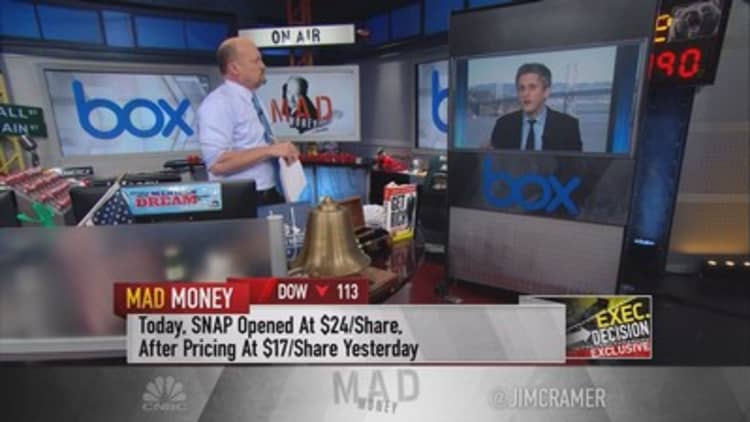Artificial intelligence (AI) will bring about huge innovation to several sectors of the economy, including health care, predicts Aaron Levie, the co-founder and CEO of enterprise cloud company Box.
Levie, who launched Box in 2005, believes artificial intelligence will create the most innovation for businesses.
"There is so much untapped talent and human capability and capacity that is constrained by the fact that we spend so much time just doing things that computers can do way better," Levie told CNBC during an interview last week.
"Once you can solve those problems now you can start to put and apply people to things that we're uniquely capable of going out and solving. Things that really require our ingenuity, creativity and dexterity," he added.
In answer to concerns about the impact AI may have on job losses, Levie said he is an optimist.
"I actually think we are being a little bit myopic. It's so easy to identify the businesses or the industries or the job functions that are going to be replaced or that are better served with AI. And it's so much harder to imagine the things that will be borne out of that innovation and the new industries that emerge and the new job functions that emerge," he said.

"We look at the things that get disrupted without imagining the things that get created. If you look at human history, any time there has been some major technological innovation, you ultimately have some significant increase in productivity that then creates the need for a new set of industries, a new set of jobs," he added.
Levie used the example of smartphones, without which we wouldn't have the entire on-demand transportation industry, as exemplified by Uber and Lyft.
"We wouldn't have been able to fathom it if we'd tried to brainstorm it, because we couldn't imagine having instant access to every car that was available," he said.
Levie predicted that health care was one sector of the economy which could benefit from unexpected innovation as a result of AI.
"What if you could have intelligence systems that could make it so it wasn't so difficult to see a doctor? So it wasn't so costly to become a doctor from the amount of time and investment that it takes as it does today? What if you could actually interact with the health-care system in a much more seamless and continuous way?," he said.
"Think about all the kinds of jobs that would emerge because of that, it would be a net growth area in the economy for health care in terms of the number of people who would be able to be employed by the system."
In fact, this kind of development is already starting to happen around the world. Sophia Genetics, a data-driven medical company, developed SOPHiA, an artificial intelligence for genomics testing which is designed to improve and accelerate patient diagnosis and care. It has been deployed at over 260 institutions in 46 countries. In March, several African hospitals started to integrate SOPHiA.
"Since inception, our vision has been to develop innovative technological solutions that analyze patients' genomic profiles to offer better diagnosis and care to the greatest number of patients, wherever they live," said Jurgi Camblong, CEO and co-founder of Sophia Genetics, in a press release.
"SOPHiA is triggering a technological leapfrog movement in health care across Africa. By joining our community, African hospitals are breaking down the technological barriers that prevented African patients from benefiting from the same level of genomic testing than patients from the best medical centers worldwide."
Levie was visiting London for the Box World Tour, a day for business executives to learn more about the company and how its service could impact their work.





